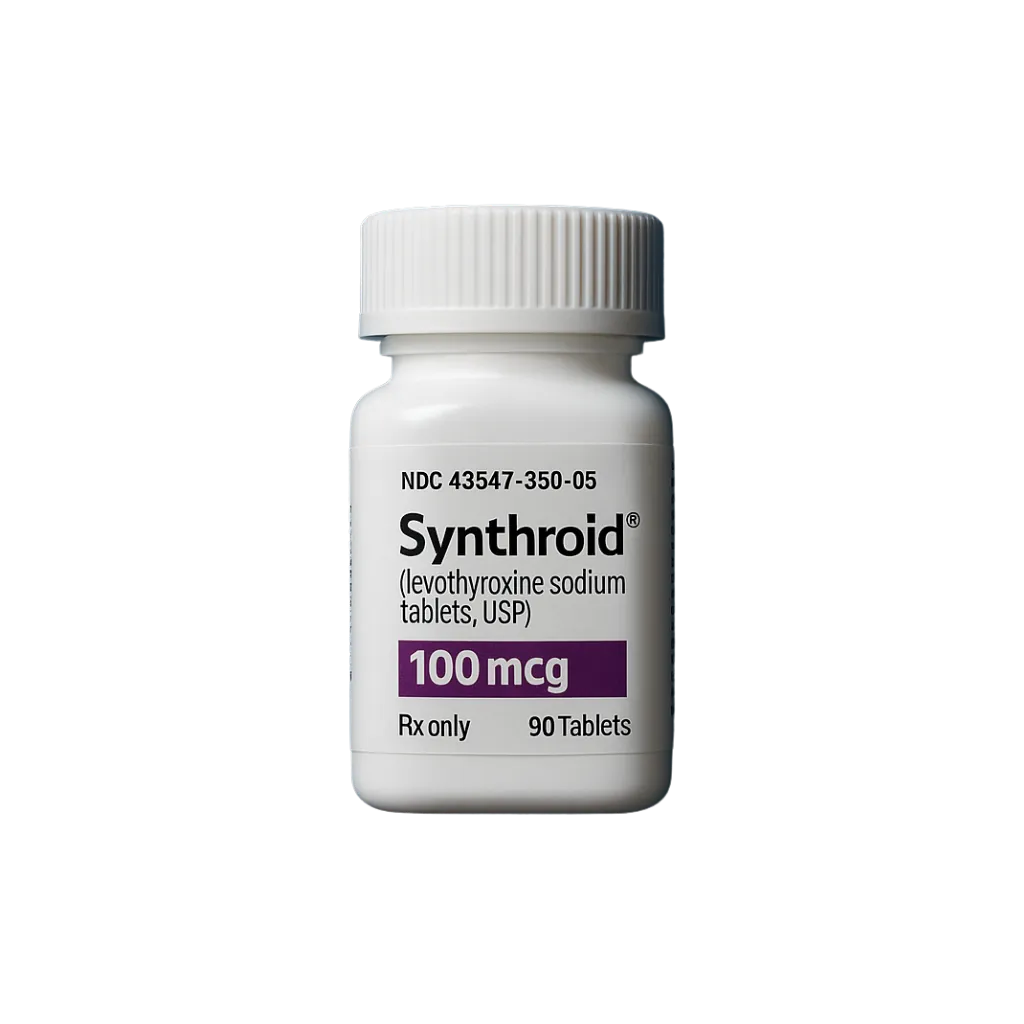How do I take Synthroid?

Synthroid is a synthetic thyroid hormone used to treat hypothyroidism and certain cases of thyroid cancer. Correct, consistent dosing is essential to maintain stable thyroid levels and avoid complications.
When and How to Take It
- Take once daily on an empty stomach, ideally 30–60 minutes before breakfast.
- Use only water; avoid coffee, juice, or other beverages until after your first meal.
- If morning dosing is not possible, take in the evening at least 3–4 hours after your last meal.
- If you miss a dose, take it as soon as you remember unless it is within a few hours of your next scheduled dose. Do not double up.
Medications and Supplements to Separate by ≥4 Hours
- Calcium supplements or antacids containing aluminum, calcium, or magnesium
- Iron supplements
- Cholesterol‑lowering agents (such as cholestyramine, colesevelam, colestipol)
- Sucralfate
- Sevelamer or lanthanum
- Proton pump inhibitors (omeprazole, lansoprazole, esomeprazole, rabeprazole)
- Simethicone
- Multivitamins or herbal products containing biotin
- High‑fiber supplements or soy products
Dietary Considerations
Certain foods may reduce absorption and should be eaten several hours after your medication:
- Walnuts or high‑fiber foods
- Grapefruit juice
- Soybean flour or soy‑based formulas
- Cottonseed meal
Side Effects
Common (often from excessive dosing)
- Headache
- Palpitations or irregular heartbeat
- Nausea or vomiting
- Anxiety, irritability, tremors
- Insomnia
- Weight changes
- Hair thinning
Shop Medications
Serious (seek immediate help)
- Severe chest pain or shortness of breath
- Signs of heart failure (swelling of ankles, extreme fatigue)
- Allergic reactions (hives, swelling of face or throat, difficulty breathing)
Warnings and Precautions
- Avoid use for weight loss or obesity treatment
- Inform your provider if you have adrenal insufficiency, heart disease, diabetes, low bone density, or pituitary/kidney disorders
- Monitor thyroid function regularly to guide dose adjustments
Dose Adjustments and Monitoring
Initial dosing is individualized based on age, weight, cardiac status, and the severity of hypothyroidism. Typical adjustments are 12.5–25 mcg every 4–8 weeks until the target thyroid‑stimulating hormone (TSH) level is reached. Lower starting doses and slower titrations are recommended for older adults and those with heart disease.
Sources
- American Thyroid Association task force guidelines, 2014
- Liwanpo L. et al., Best Practice & Research Clinical Endocrinology & Metabolism, 2009
- Synthroid (levothyroxine sodium) Prescribing Information, AbbVie, 2024





